The University of Florida Samuel Proctor Oral History Program’s Advisory Board is a dynamic panel composed of civically engaged, internationally-recognized scholars and activists. Members of the Advisory Board are distinguished scholars whose works forge interdisciplinary connections with oral history, sociology, and critical ethnic studies.

Left to right: Dr. Akinyele Umoja, Dr. William Chafe, Dr. Michael Honey, Dr. Benjamin Houston, Dr. Hasan Jeffries, Gaye Theresa Johnson, Dr. Carlos Muñoz, Solymar Solá Negrón, and Dr. Vicki Ruiz.
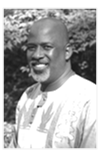 Dr. Akinyele Umoja, Georgia State University
Dr. Akinyele Umoja, Georgia State University
Dr. Akinyele Umoja (Email) is Chair and Professor of African American Studies at Georgia State University (opens in new tab). His engaged scholarship focuses on African American Social Movements, specifically the Civil Rights Movement and the Black Power Movement. His most recent book published by New York University Press, We Will Shoot Back: Armed Resistance in the Mississippi Freedom Movement (opens in new tab), relies upon oral history, archival material, and scholarly literature to reconstruct the use of armed resistance by Black activists and supporters in Mississippi to challenge racist terrorism, segregation, and fight for human rights and political empowerment from the early 1950s through the late 1970s.
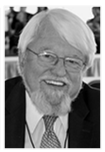 Dr. William H. Chafe, Duke University
Dr. William H. Chafe, Duke University
Dr. William H. Chafe (opens in new tab) (Email) is Mary Alice Baldwin Professor of History and Co-Director of the Program on History, Public Policy and Social Change at Duke University (opens in new tab). His work focuses on the 20th Century, Women’s Issues, Race, and Oral History. Dr. Chafe has written 12 books overall, and his work on the development of the sit-in movement in North Carolina helped re-orient scholarship on Civil Rights history towards oral history and community studies. Dr. Chafe recently received the Lillian Smith Award for Remembering Jim Crow (opens in new tab).
 Dr. Michael Honey, University of Washington, Tacoma
Dr. Michael Honey, University of Washington, Tacoma
Dr. Michael Honey (opens in new tab) (Email) is Haley Professor (opens in new tab) of the Humanities and Professor of History and Labor and Ethnic Studies at the University of Washington, Tacoma (opens in new tab). His work explores Labor and Ethnic Studies in American History, and he is noted for his extensive use of oral history, deep archival research, and vibrant writing style. His books have been recognized by the Robert F. Kennedy Book Foundation (opens in new tab), the Organization of American Historians (opens in new tab), the Southern Historical Association (opens in new tab), and the United Association of Labor Educators (opens in new tab). His new film, “Love and Solidarity: Rev. James Lawson and Nonviolence in the Search for Workers’ Rights,” (opens in new tab) screened in Seattle in October.
 Dr. Benjamin Houston, Newcastle University
Dr. Benjamin Houston, Newcastle University
Dr. Benjamin Houston (Email) is a Senior Lecturer of American History at Newcastle University (opens in new tab) in the United Kingdom. His work interrogates the Civil Rights and the African American Freedom Struggle, The U.S. South, 20th Century U.S. History, and Oral history. Dr. Houston is the director of the Remembering African American Pittsburgh [RAP] Oral History Project, sponsored by the Center for African American Urban Studies and the Economy with the Department of History at Carnegie Mellon University (opens in new tab). He is the author of The Nashville Way: Racial Etiquette and the Struggle for Social Justice in a Southern City (opens in new tab).
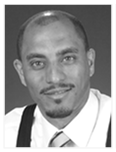 Dr. Hasan Jeffries, Ohio State University
Dr. Hasan Jeffries, Ohio State University
Dr. Hasan Jeffries (opens in new tab) (Email (opens in new tab)) is a Professor of History at the Ohio State University (opens in new tab), and he holds a joint appointment with the Kirwan Institute for the Study of Race and Ethnicity (opens in new tab). His research emphasis is African American History and American History Since 1877. His most recent book, Bloody Lowndes: Civil Rights and Black Power in Alabama’s Black Belt (opens in new tab), tells the remarkable story of the local people and SNCC organizers who ushered in the Black Power era by transforming rural Lowndes County, Alabama from a citadel of violent white supremacy into the center of southern black militancy by creating the Lowndes County Freedom Organization (LCFO), an all-black, independent, political party that was also the original Black Panther Party.
 Dr. Gaye Theresa Johnson, University of California, Los Angeles
Dr. Gaye Theresa Johnson, University of California, Los Angeles
Dr. Gaye Theresa Johnson (opens in new tab) (Email) is a Professor in the Department of Chicana/o Studies at the University of California, Los Angeles (opens in new tab). Professor Johnson writes and teaches on race and racism, cultural history, spatial politics, and political economy. Her new book, published by the University of California Press, is entitled Spaces of Conflict, Sounds of Solidarity: Music, Race, and Spatial Entitlement in Los Angeles (opens in new tab). It is a cultural history of civil rights and spatial struggles among Black and Brown people in Los Angeles.
Dr. Carlos Muñoz, University of California, Berkeley
Dr. Carlos Muñoz (Email) is Professor Emeritus in the Ethnic Studies Department at the University of California, Berkeley (opens in new tab). A professor for over 43 years, Dr. Muñoz was the founding chair of the first Chicano Studies department in the nation at California State University, Los Angeles (opens in new tab) in 1968, and the founding chair of the National Association of Chicana & Chicano Studies (NACCS) (opens in new tab). His book, Youth, Identity, Power: The Chicano Movement (opens in new tab) won the Gustavus Myers Book Award (opens in new tab) for “outstanding scholarship in the study of human rights in the United States.” The 1st edition of the book underwent 12 printings and has become the classic study of the origins of the Movement. Dr. Muñoz a pioneer in the creation of undergraduate and graduate curricula in the disciplines of Chicano/Latino & Ethnic Studies. His research and teaching foci include Ethnic Studies, Chicano and Latino Studies, Social and Revolutionary Movements, the African Presence in Mexico, and the politics of U.S. Racial and Ethnic Identity.
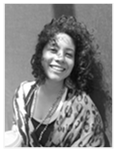 Solymar Solá Negrón
Solymar Solá Negrón
Solymar Solá Negrón (Email (opens in new tab)) is the Co-Founder and Program Director of Proyecto Algarabía (opens in new tab), a global youth movement-building project whose aim is to create platforms that empower youth through intercommunity dialogues, oral history, oral expression, art and theater in local communities. Negrón has played leadership roles in several student of color organizations, focusing on outreach and retention of students of color in education, the formation of critical ethnic studies, labor and union organizing and several political and cultural initiatives nationwide. Her community work focuses on issues of violence, sex work, criminalization, abolition, labor, alternative education, decoloniality and cross-border youth building.
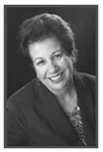 Dr. Vicki Ruiz, University of California, Irvine
Dr. Vicki Ruiz, University of California, Irvine
Dr. Vicki Ruiz (opens in new tab) (Email) is the Distinguished Professor of History and Chicano/Latino Studies at the University of California, Irvine (opens in new tab) and Former Dean of the School of Humanities (opens in new tab). Her work focuses on Chicano and Latino History, U.S. Women’s History, Immigration, and Labor. Dr. Ruiz’s recent publications include From Out of the Shadows: Mexican Women in Twentieth-Century America (opens in new tab), and Cannery Women, Cannery Lives: Mexican Women, Unionization, and the California Food Processing Industry, 1930-1950 (opens in new tab), which won the National Women’s Political Caucus (opens in new tab) Distinguished Achievement Award. Dr. Ruiz is also a Fellow with the American Academy of Arts and Sciences (opens in new tab), and president of the American Historical Association (opens in new tab).
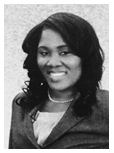 Caroline D. Vickers, Esquire
Caroline D. Vickers, Esquire
Caroline Vickers (Email) is a licensed attorney in the state of Maryland. She attended Howard University School of Law (opens in new tab), where she organized community outreach programs to advise noncustodial parents of their parental rights and responsibilities and represented parents and third parties in the Howard University School of Law Child Welfare/Family Justice Clinic (opens in new tab). Caroline also attended the University of Florida, where she was involved in the Samuel Proctor Oral History Program, and attended the Mississippi Freedom Project’s annual research trip in 2011 and coordinated the SPOHP public program, “Inside the Activities Studio: A Sit Down with Margaret Block.”
Caroline is currently a judicial law clerk at the Sussex County Family Court (opens in new tab) in Georgetown, Delaware.
For additional information, contact SPOHP, call the offices at (352) 392-7168, and connect with us online today.